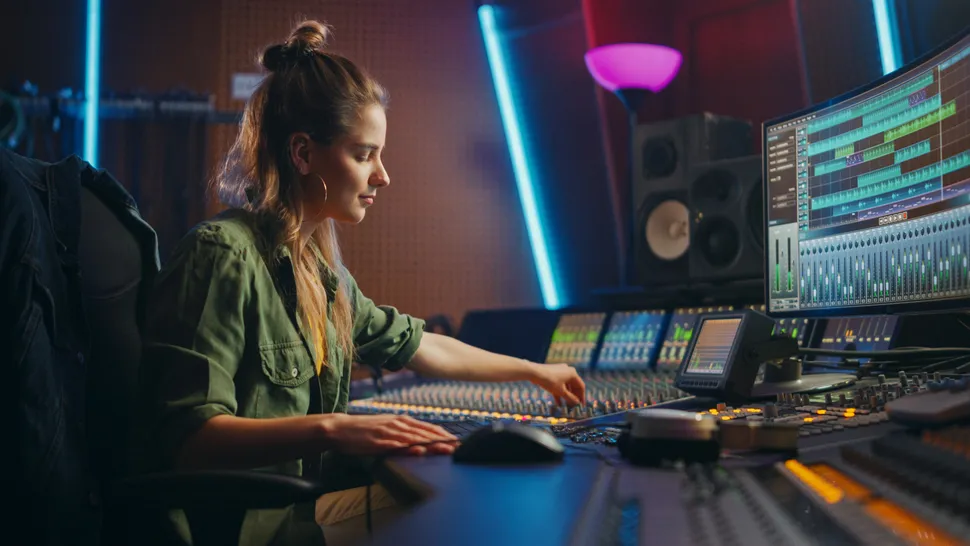In the ever-evolving world of artificial intelligence (AI), a new tool has surfaced that is pushing the boundaries of creativity. As of September 18, 2024, this AI system can take any song and transform it into any genre of your choice. Whether you want a pop hit turned into classical music or a rap track morphed into jazz, this technology is making it all possible.
Developed by a team of engineers and music enthusiasts, this AI system is generating excitement among both casual listeners and musicians alike. It offers endless possibilities for remixing and reimagining songs, potentially revolutionizing the music industry.
The Power of AI in Music
Artificial intelligence has been making strides in various fields, and music is no exception. Over the past few years, AI has been used for composing original pieces, generating lyrics, and even performing alongside human musicians. But this new AI tool takes things further by allowing users to experiment with existing songs.
By utilizing deep learning algorithms, the system can analyze a song’s melody, rhythm, and structure. It then applies genre-specific patterns to remix the song in a completely different style. For example, a country song can be converted into an electronic dance music (EDM) track or a rock song can be reimagined in a smooth R&B style.
This AI tool isn’t just limited to modern genres. It can also remix tracks in more niche or less mainstream styles, such as opera, folk, or even medieval music. The possibilities are vast, and the results are often impressive, providing new listening experiences for old favorites.
How Does It Work?
At the heart of this AI tool is a powerful neural network that has been trained on thousands of songs across different genres. The developers behind the tool fed it a massive amount of data, including song patterns, chord progressions, and rhythm styles. The AI then learned how to replicate and manipulate these elements to fit other genres.
Users simply upload a song to the system, select their preferred genre, and let the AI do the work. Within moments, the AI outputs a new version of the song in the desired style. The tool is designed to maintain the original elements of the song, such as lyrics and basic melody, while reshaping it to fit the characteristics of the chosen genre.
This process is made possible by the system’s ability to break down a song’s components and rebuild them using the traits of different musical styles. It also ensures that the remixed version sounds natural, with smooth transitions and genre-appropriate instrumentation.
Impact on the Music Industry
The introduction of this AI tool has already sparked discussions in the music industry. On one hand, it offers musicians a powerful tool to experiment with their work. Artists can take a song they’ve created and explore how it might sound in different genres, opening up new creative possibilities.
For independent artists, in particular, this technology can be a game-changer. They can easily remix their songs to appeal to different audiences without having to hire additional musicians or producers. It also allows them to quickly test new styles and sounds, potentially reaching a wider fan base.
On the other hand, some in the music community worry about the potential downsides. If AI can seamlessly remix and recreate music, there is a concern that human creativity could be overshadowed. Additionally, questions about copyright and intellectual property arise when an AI system is manipulating someone else’s artistic work.
Nevertheless, the consensus is that AI tools like this one are likely to become an integral part of music production. They can streamline the remixing process, help artists experiment with new styles, and even give listeners personalized music experiences.
Possible Future Developments
As with many AI-driven technologies, this tool is still in its early stages. However, there are already plans to further develop the system’s capabilities. Developers aim to refine the AI’s ability to recognize more subtle musical nuances, such as emotional tone and cultural context, to make remixes even more authentic.
Additionally, the tool may eventually be expanded to allow users to adjust individual song elements, like tempo, vocal style, or instrumentation. This would give users more control over the remixing process, enabling them to create highly customized versions of their favorite songs.
Another potential development is the incorporation of AI-generated visuals to accompany the remixed tracks. This could further enhance the listening experience, as users would be able to enjoy a full multimedia transformation of a song, complete with genre-appropriate video clips or animations.


